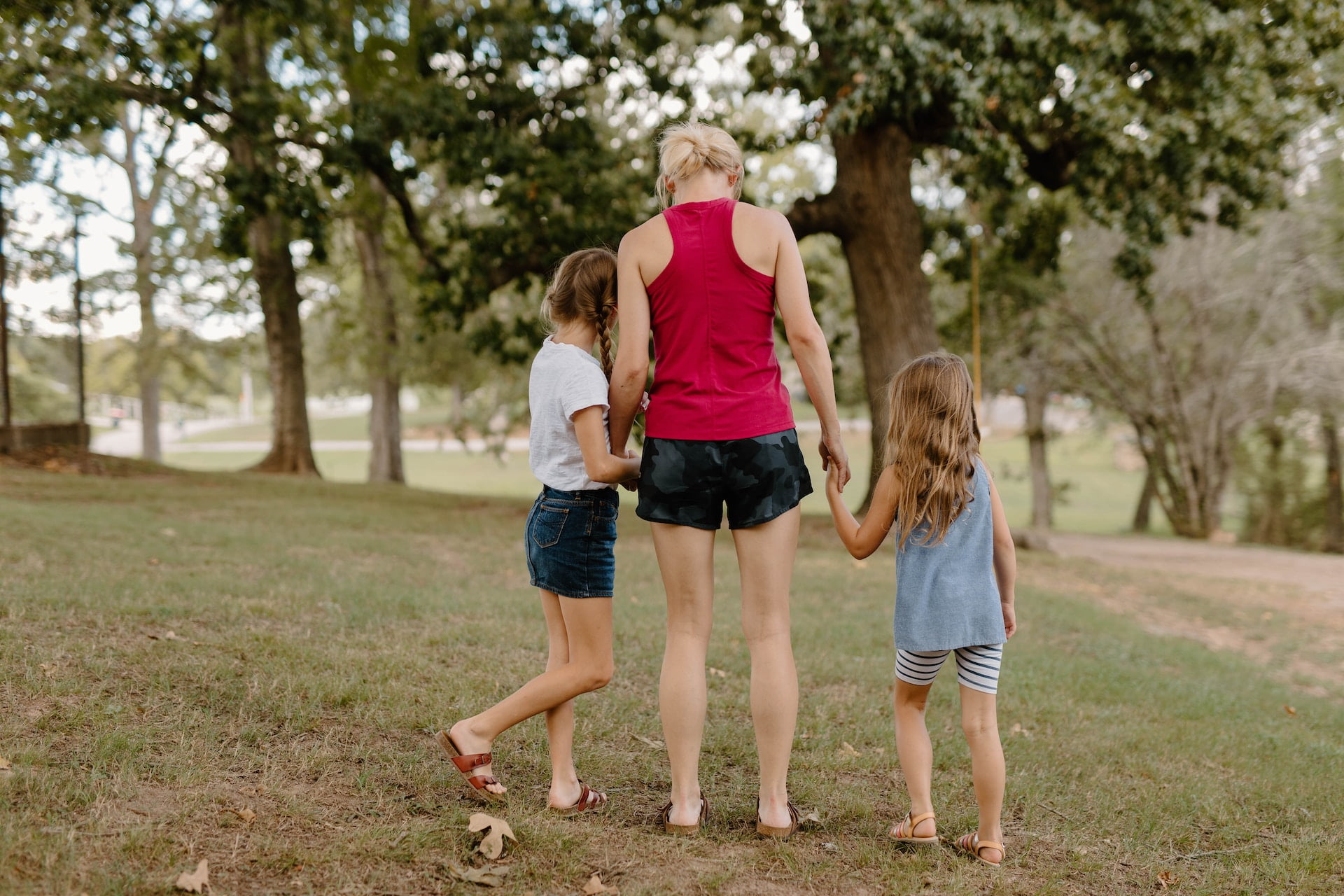Nobody can push a parent’s buttons like their own children. The tailor-made combination of genetics, expectations of society, and general humanness of your children has likely given you many a headache and caused you to lose your cool entirely and also lose sight of peaceful parenting.
Both mom and dad can be made into rather fun acronyms such as Manager Of Mayhem and Disaster Assistance Director. But dad jokes aside, being a parent can feel like you are just barely containing a chaotic force of nature.
 Steps for Practicing Peaceful Parenting
Steps for Practicing Peaceful Parenting
With the financial strain, the busy schedules, and the constant needs of children weighing on you, you may wonder if peaceful parenting is possible. Can you ever get these fearfully and wonderfully made children safe and secure without screaming or abusing them in some way?
The answer is yes, it is possible. Peaceful parenting is not confined to snippets on social media. What is shown on social media is not a measure of your parenting prowess. So, start by putting down the measuring stick. McKinney Christian Counseling offers faith-based guidance to help parents navigate the challenges of raising children with grace and wisdom.
Stop comparing yourself to other parents.
You do not see other parents and children day in and day out. You don’t have the same kids, you don’t have the same problems, and you don’t need to judge someone else based on brief interactions and edited presentations on social media.
Seek out parents you admire as friends and support each other. Wise parents know that there are ups and downs, as well as changing seasons. How you view other parents sets the tone for how you view yourself as a parent. By being supportive and generous toward other parents, you will prevent a lot of angst toward yourself and your children.
Mom and Dad work together at parenting.

No matter how the responsibilities shake out because of work and life, both parents will be more at peace when they are a team. Even divorced parents can still work together at parenting (though that may have different challenges). By being a team, you can make decisions from a place of thriving rather than surviving.
If there is one parent who is a primary caregiver, the other parent should give them regular breaks. Major discussions about discipline, consequences, choices about their education, etc., should happen between the parents. For outer peace, parents need to support each other. If mom told the kids to brush their teeth, then dad should reinforce, if necessary.
Set reasonable expectations of yourself and your children.
As your child grows so will their abilities and responsibilities. A twelve-year-old can do things a three-year-old could never do. Understanding developmental milestones and abilities is an important part of parenting. You are responsible for teaching them emotional regulation and how to do chores. If you have not taught them how to make their bed, you should not be angry when they don’t do it to your standards.
Clear communication is part of this process. That often involves learning different communication styles. You may say, “Let’s tidy this room.” To you, that may include washing the windows and vacuuming, but maybe a child will think they just need to put away their toys. Clearly communicating your expectations helps you both avoid conflict due to misunderstandings.
However, even if you set age-appropriate expectations and communicate with clear and specific instructions, children will argue and complain.
Pay attention to the underlying emotion, not just the surface one.
 Just like adults, children get tired, hungry, overwhelmed, or just plain bored. Unlike adults, they do not always recognize their underlying emotions. Your role as a parent is to help them uncover the reasons for their stress. Maybe they are hungry, or possibly they need a reason to do an assigned task.
Just like adults, children get tired, hungry, overwhelmed, or just plain bored. Unlike adults, they do not always recognize their underlying emotions. Your role as a parent is to help them uncover the reasons for their stress. Maybe they are hungry, or possibly they need a reason to do an assigned task.
Avoid saying, “Because I said so.” as a blanket response. There may be times when that is appropriate, but you can prepare for such times by building trust. Tell your child why doing the dishes is a part of life. Explain that there are times that you as an adult have more information that they don’t need.
You build trust by paying attention to their fears, worries, stresses, etc., giving them answers to the best of your ability and the necessary amount of information for their maturity.
External peace is not the same as internal peace.
You can put every organizational system in place, have children who never talk back, and believe you never need to raise your voice, and not truly have a peaceful home.
A peaceful home is not about systems, it comes from loving parents who understand that both they and their children are humans. Humans will make mistakes and need time to learn and grow. Peaceful parenting allows you to grow and learn together. If you need guidance in this journey, Christian Counseling at McKinney Christian Counseling can help support you in building a home filled with grace and understanding.
“Happy Family”, Courtesy of Getty Images, Unsplash.com, Unsplash+ License; “Mealtime”, Courtesy of Tanaphong Toochinda, Unsplash.com, CC0 License; “Swing”, Courtesy of Brooke Cagle, Unsplash.com, Unsplash+ License
- Caitlin Mallery: Author
Caitlin Mallery is a freelance writer, mother of four, avid reader, and amateur gardener from the Pacific Northwest. When she is not writing or chauffeuring children hither, thither, and yon, she works as a hospital chaplain.
“Working in spiritual...
DISCLAIMER: THIS ARTICLE DOES NOT PROVIDE MEDICAL ADVICE
Articles are intended for informational purposes only and do not constitute medical advice; the content is not intended to be a substitute for professional medical advice, diagnosis, or treatment. All opinions expressed by authors and quoted sources are their own and do not necessarily reflect the opinions of the editors, publishers or editorial boards of Stone Oak Christian Counseling. This website does not recommend or endorse any specific tests, physicians, products, procedures, opinions, or other information that may be mentioned on the Site. Reliance on any information provided by this website is solely at your own risk.





